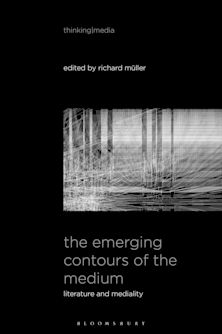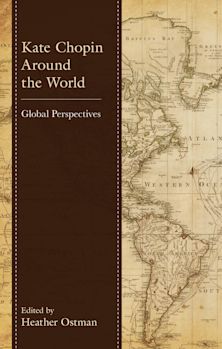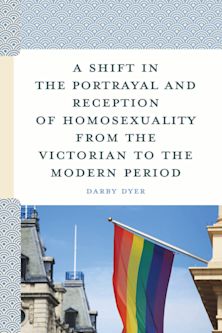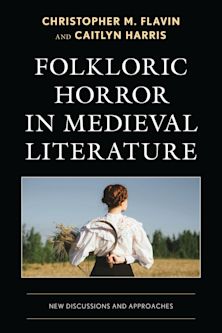- Home
- ACADEMIC
- Literary Studies
- Literary Studies - Other
- Ecocritical Concerns and the Australian Continent
Ecocritical Concerns and the Australian Continent
Beate Neumeier (Anthology Editor) , Helen Tiffin (Anthology Editor) , Dany Adone (Contributor) , Katrin Althans (Contributor) , Eva Bischoff (Contributor) , C.A. Cranston (Contributor) , Melanie Brück (Contributor) , Norbert Finzsch (Contributor) , Ken Gelder (Contributor) , Helen Gilbert (Contributor) , Anna Haebich (Contributor) , Victoria Herche (Contributor) , Bentley James (Contributor) , David Kern (Contributor) , Catherine Laudine (Contributor) , Philip Mead (Contributor) , Anke Tonnaer (Contributor) , Rachael Weaver (Contributor) , Carsten Wergin (Contributor) , Sandra Williams (Contributor) , Alexis Wright (Contributor)
Ecocritical Concerns and the Australian Continent
Beate Neumeier (Anthology Editor) , Helen Tiffin (Anthology Editor) , Dany Adone (Contributor) , Katrin Althans (Contributor) , Eva Bischoff (Contributor) , C.A. Cranston (Contributor) , Melanie Brück (Contributor) , Norbert Finzsch (Contributor) , Ken Gelder (Contributor) , Helen Gilbert (Contributor) , Anna Haebich (Contributor) , Victoria Herche (Contributor) , Bentley James (Contributor) , David Kern (Contributor) , Catherine Laudine (Contributor) , Philip Mead (Contributor) , Anke Tonnaer (Contributor) , Rachael Weaver (Contributor) , Carsten Wergin (Contributor) , Sandra Williams (Contributor) , Alexis Wright (Contributor)
You must sign in to add this item to your wishlist. Please sign in or create an account
Description
Ecocritical Concerns and the Australian Continent investigates literary, historical, anthropological, and linguistic perspectives in connection with activist engagements. The necessary cross-fertilization between these different perspectives throughout this volume emerges in the resonances between essays exploring recurring concerns ranging from biodiversity and preservation policies to the devastating effects of the mining industries, to present concerns and futuristic visions of the effects of climate change. Of central concern in all of these contexts is the impact of settler colonialism and an increasing turn to indigenous knowledge systems. A number of chapters engage with questions of ecological imperialism in relation to specific sociohistorical moments and effects, probing early colonial encounters between settlers and indigenous people, or rereading specific forms of colonial literature. Other essays take issue with past and present constructions of indigeneity in different contexts, as well as with indigenous resistance against such ascriptions, while the importance of an understanding of indigenous notions of “care for country” is taken up from a variety of different disciplinary angles in terms of interconnectedness, anchoredness, living country, and living heritage.
Table of Contents
Introduction
Beate Neumeier
Section 1: Politics of the Land and Indigenous Knowledge
1 The Museumesque in Pristine Wilderness
Alexis Wright
2 The Smooth Spaceof theNomads: IndigenousOutopia, IndigenousHeterotopia
and the Exampleof Australia
Norbert Finzsch
3 From Reverence to Rampage: Care for Country vs. Ruthless Exploitation
Catherine Laudine
Section 2: Colonial Legacies and Current Environmental Concerns
4 Australian Conservation Policies and the Owls of Lord Howe Island
Helen Tiffin
5Biological Colonisation in the Land of Flowers
Anna Haebich
6 Moving Trees and Trading Melons: Reconstructing Local Knowledge and Settler Practices in 1840s South Australia
Eva Bischoff
Section 3: Ecocriticism and Fieldwork
7 Ecologies of the Otherwise: Glimpses of Australia after the Resources Boom
Carsten Wergin
8 On The Beaten Track: Ambiguous Wilderness in the Tourist Space of Indigenous Australia Anke Tonnaer
9 Yan-nha?u Language of the Crocodile Islands: Anchoredness, Kin, and Country
Dany Adone, Melanie Brück, Bentley James
Section 4: Ecocritical Approaches to Colonial Art
10 Reconstructing Representations: ‘Australia’ as Ecocritical Andragogy
CA Cranston
11 Killing and Sentiment in the Colonial Australian Kangaroo Hunt Narrative
Ken Gelder and Rachael Weaver
12 Marriage, Mining and Environmental Destruction in Nineteenth-Century Fiction about Australia
Philip Mead
Section 5: Ecocritical Concerns Across Contemporary Arts: Indigenous Voices in Fiction, Poetry and Performing Arts
13 Performing the Anthropocene: Marrugeku’s Cut the Sky
Helen Gilbert
14 Corporate Interest and the Power of Mines in Indigenous Writing and Film:
Alexis Wright’s Carpentaria (2006) and Ivan Sen’s Goldstone (2016)
Victoria Herche and David Kern
15 Defying the ‘Ecological Indian’: The Urban Ecopoetry of Samuel Wagan Watson
Katrin Althans
Section 6: Coda – Crossing Boundaries
16 Australia’s Great Barrier Reef: Two Personal Accounts
Helen Tiffin and Sandra Williams
About the Contributors
Product details
| Published | Nov 08 2019 |
|---|---|
| Format | Ebook (PDF) |
| Edition | 1st |
| Extent | 1 |
| ISBN | 9798216237259 |
| Imprint | Lexington Books |
| Series | Ecocritical Theory and Practice |
| Publisher | Bloomsbury Publishing |
About the contributors
Reviews
-
This is a timely and wide-ranging interdisciplinary volume that offers both breadth and depth in its expert coverage of contemporary ecocritical issues in Australia. It comprises an important collection of essays that will be essential reading for environmental humanities scholars and all those concerned with the global and local effects of the Anthropocene.
Sue Kossew, Monash University
-
The book does a splendid job in opening up important and inspiring conversations—between writers and scholars, ecocritical as well as postcolonial critics, literary studies, cultural studies, linguistics, and history. A timely must-read for everyone interested in research on Australia and the Environmental Humanities that exemplifies why postcolonial studies should be inherently ecocritical while ecocriticism is inherently postcolonial.
Roman Bartosch, University of Cologne
-
This timely and topical volume, with contributions from leading figures in the field, demonstrates the value of ecocritical studies for understanding human agency in a time of environmental crisis. The Australian focus reveals vital global themes including the significance of Indigenous knowledge for the past and future.
Paul Arthur, Edith Cowan University


































